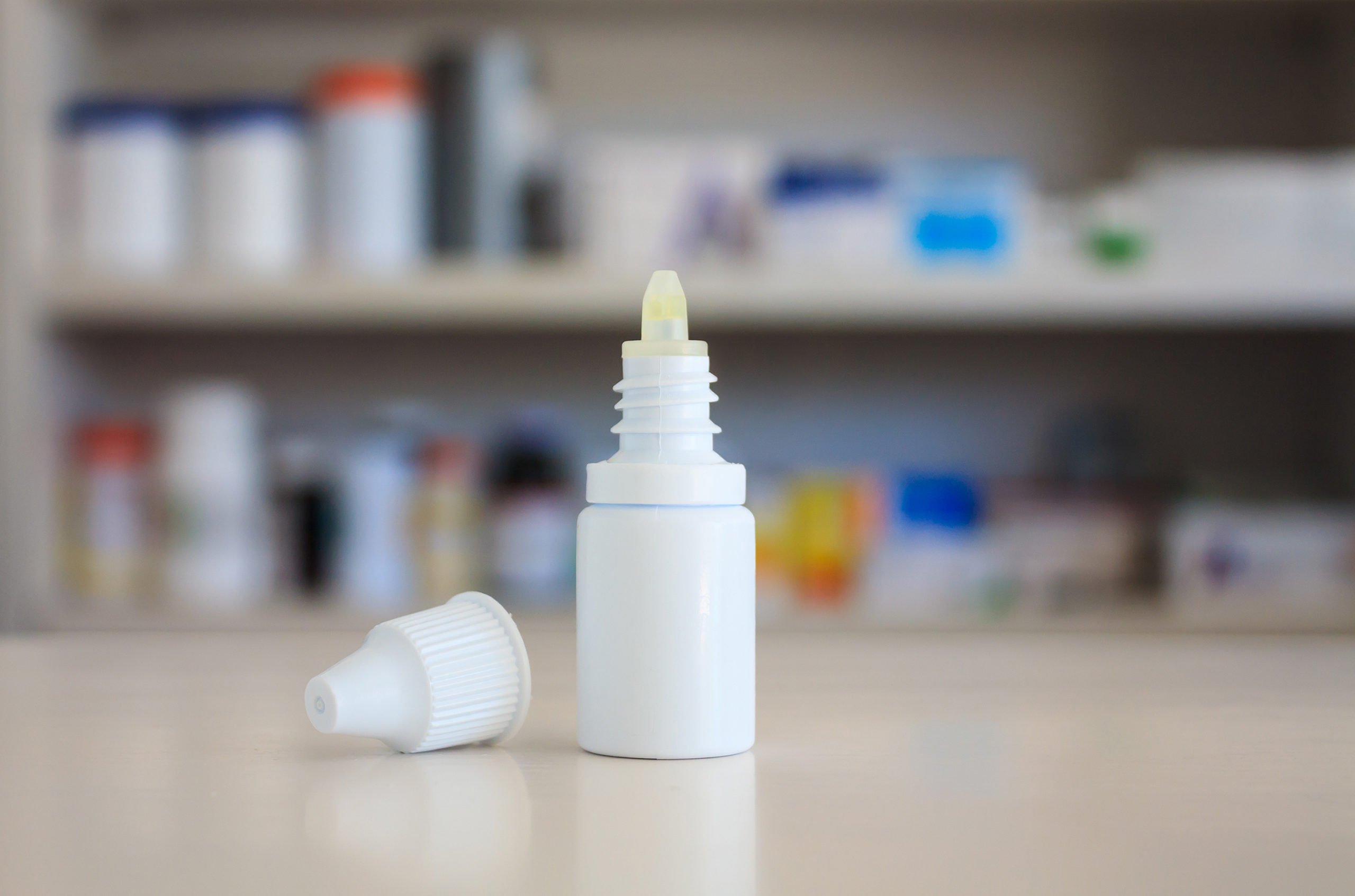A trip down the eyecare aisle at your local grocery store can be overwhelming. Look around and you’ll be bombarded with different brands, drops, gels, and promises. Usually someone will venture down that aisle for one of three primary symptoms: dryness, redness, or itch. Fortunately for the consumer (or perhaps not so fortunately), nearly every eye drop one comes across claims to alleviate them all! Often, people with the best intentions will leave the aisle confused and likely without the most effective product. Some may also wonder if all those ingredients will really help, and if a natural or “homeopathic” solution will be best for them.
At an eye drop’s core, it is simply a lubricant. Our environment, lifestyle, and visual demands can all contribute in their own ways to discomfort of the eyes and eyelids. Decreasing the friction between ocular surfaces and providing an extra layer of hydration promotes eye health. In order for an eye drop to be comfortable and safe for instillation, it also needs to closely match the composition of our natural tears. On every eye drop label you’ll find “active” and “inactive” ingredients. The active ingredients are the ones aiming to fix the problem. The inactive ones are there to help maintain and support the quality of the drop, as well as make it more compatible with the surface of the eye.
Enter the competition. Aside generic and run-of-the-mill artificial tears and lubricating eye drops, you’ll find redness relievers, itch stoppers, and even drops that offer a “cooling sensation”. These types of drops contain more than just a lubricant. As great as they may sound, and as compelling the packaging may be, the actual benefits are unlikely to live up to their claims. Drops such as Visine, Rohto, and even Similasan are band-aids covering an underlying problem. They all use agents that alter the way the eye functions, usually by constricting the blood vessels, leading to a “healthier” appearance. Similasan takes a slightly different approach by using extracts and compounds promoted by homeopathic medicine, though the end result is similar and the ingredients included lack quality research.
Eye Drops Instead of Eye Glasses? – See our blog
The problem with extra ingredients in eye drops, as alluded to above, is that they aren’t actually solving the issue or improving eye health. They are masking the symptoms of a chronic condition. Perhaps more importantly, the active ingredients of the drops listed above are known to cause adaptation and dependence, leading to redder and more irritated eyes if the drops are stopped. This phenomenon is great if you sell eye drops, but it does not benefit the consumer long term.
I always recommend a simple lubricating drop for patients, preferably brand name and preservative free. I’ve found the ingredients used in brand name eye drops are often more comfortable, and do a better job for patients. Most eyedrop bottles will contain preservatives that can irritate the eyes, especially if the tissues are already compromised. For those patients, I recommend preservative free artificial tears. These drops will not have the same short-term effects as the others listed above, but will promote a healthier tear film and offer more sustainable benefits that will not lead to dependence. Preservative free tears can be used as often as needed, whereas regular preserved tears shouldn’t be used more than six times per day. It is important to note that single use preservative tear vials once opened, should be finished or discarded the same day. If you’ve tried over-the-counter eye drops and are still struggling with symptoms of dryness, irritation, or blurred vision, I recommend talking to a doctor about your specific condition and needs. For more information, see the links below.
References:
https://www.ncbi.nlm.nih.gov/pmc/articles/PMC8200152/












